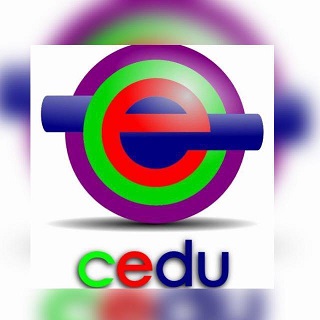DIAGNOSIS OF THE FORMATIVE EVALUATION OF LEARNING AT THE UNIVERSITY OF INTERNATIONAL ECONOMY OF HUNAN
Keywords:
Assessment, Learning, Formative function, Students, SpanishAbstract
Spanish is an official language that is spoken in many countries internationally. The work presented focuses on the formative function of learning assessment during the teaching of the Spanish Language at a Chinese university. For this reason, this article presents the following objective: To socialize the results of the diagnosis of the assessment of the learning of Basic Spanish as a foreign language at the Hunan University of International Economics of China. In the research, theoretical methods were applied to reflect the essential relationships of the object under investigation, empirical methods, which highlight the phenomenological characteristics under study and statistical techniques, as ways of evaluating the information obtained. As a fundamental result, the diagnosis made showed deficiencies in the different dimensions addressed in the formative function of the evaluation of student learning.
Downloads
References
Allal, L. (1979). Stratégies d'évaluation formative: conceptions psychopédagogiques et modalités d'application. En L. Allal, J. Cardinet y P. Perrenoud (eds.), Evaluation formative dans un enseignement différencié. Bern: Peter Lang, p.153-183.
Álvarez Méndez, J. M. (2010). El currículum como marco de referencia para la evaluación educativa. En J. Gimeno Sacristán, Saberes e incertidumbres sobre el currículum. Madrid: Morata, p.355-372.
Black, P.; Wiliam, D. (1998). Assessment and Classroom Learning. Education: Principles, Policy and Practice, 5(1); 7-74.
Cardinet, J. (1988a). La objetividad de la evaluación. En F. Huarte, Temas actuales sobre Psicopedagogía y Didáctica. Madrid: Narcea, p. 92-102.
Chappuis, J. (2009). Seven Strategies of Assessment for Learning. Upper Saddle River, NJ: Pearson.
Escudero, J. M. (2003). Dos décadas de reformas escolares en España y Latinoamérica: algunas lecciones que es preciso aprender. Revista de la Facultad de Ciencias de la Educación, 5; 19-72.
García, A. (2004). “Marco común europeo de referencia para las lenguas: aprendizaje, enseñanza, evaluación.” Actas I Jornadas Didácticas de Español y Alemán como Lenguas Extranjeras. Alemania, Bremen: Instituto Cervantes, 25-26 de septiembre de 2003. Madrid: Instituto Cervantes, Edelsa. Disponible en: http://bremen.cervantes.es/MenuEnsenanza_46_1.htm
Gimeno Sacristán, J. (1992, 1996). La evaluación en la enseñanza. En J. Gimeno Sacristán, Comprender y transformar la enseñanza. Madrid: Morata, p. 334-397.
Guba, E.; Lincoln, Y. (1982). Effective evaluations. San Francisco: Jossey-Bass.
Harlen, W. (2006). On the relationship between Assesment for Formative and Summative Purpose. En: J. Gardner: Assesment and Learning. Thousands oak, California: SAGE Publications, pp.87-102.
House, E. (1997). Evaluación, ética y poder. Madrid. Ediciones Morata.
Jorba, J.; Sanmarti, N. (2002): Enseñar, aprender y evaluar: un proceso de relación continuada. Madrid: Publicaciones del MEC, España.
Pérez, A. (1989): La cultura escolar en la sociedad neoliberal. Madrid: Morata.
Popham, W. (2006). Defining and enhancing formative assessment. Annual Large Scale Assessment Conference Council of Chief State School Officers. Los Angeles, CA, p. 1-10.
Popham, W.J. (2008). Transformative assesment. Alexandria, Virginia: Association for Supervision and curriculum development.
Salinas Salazar, M. L. (2002). La Evaluación de los aprendizajes en la universidad. Rionegro, Colombia: Universidad de Antioquía.
Tessmer, M. (1993). Planning and conducting formative evaluations. Londres: Kogan, Page.
Published
How to Cite
Issue
Section
License
Copyright
The submission of originals to Cenas Educacionais (Educational Scenes - CEDU) implies the transfer, by the authors, of the publication rights. The copyright for the manuscripts published in this journal is the author(s), with CEDU rights over the first publication. Authors(s) may only use the same results in other publications by explicitly indicating CEDU as the means of the original publication.
Creative Commons License
Except where otherwise specified, the terms of a Creative Commons Attribution-ShareAlike 4.0 International License license apply to the material published in this journal, which allows unrestricted use, distribution and reproduction in any medium provided the original publication is correctly cited.






 This work is licensed with a License
This work is licensed with a License 